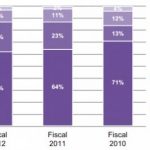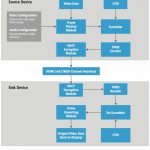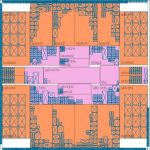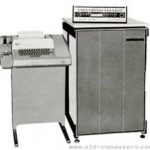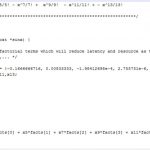Electronic Design Automation Software and Semiconductor Intellectual Property are not so much the tail that wags the dog, rather they are like the heart of an elephant, tiny in comparison but without which there is no elephant. There is no doubt that EDA and IP have been key enablers of the semiconductor industry for the past 50 years… Read More
Tag: eda
Synopsys: Getting To Know EDA’s Heavyweight Champion
From chip IP vendor ARM Holdings to semiconductor foundry Taiwan Semiconductor, there have been many winners from the mobile device revolution that was sparked by Apple’s introduction of the iPhone. However, while these big-ticket names get all the fame and glory, the electronic design automation space (“EDA” for short) is … Read More
Cadence Grows VIP Business – What’s New?
VIPs (Verification IPs) are really important in this complex world of SoCs which involve various IPs, interfaces and continuously evolving protocols and standards, thus making the task of verifying an overall system extremely challenging. And the verification must be done in minimum possible run-time and memory consumption.… Read More
A Mixed-Signal IC Summit in San Jose
Analog and mixed-signal ICs are tougher to design and verify compared to digital, so if you want to learn more about best practices from actual AMS engineers then consider attending a summitthat is sponsored by Cadence Design Systems next Thursday, October 10th in San Jose from 8:00AM until 6:30PM.
They’ve lined up an interesting… Read More
Floorplanning Merged With Synthesis
One area of iteration that is becoming more problematic is between floorplanning and synthesis. So much of timing is driven by placement that fixing timing and even power often involves not just re-synthesis and re-placement but alterations to the floorplan. The Achilles heel of existing methods is that floorplanning tools … Read More
TSMC Awards Berkeley Design Automation
One of the highlights of the TSMC 2013 Open Innovation Platform® Forum was the Partner Award Ceremony. TSMC awarded Berkeley Design Automation (BDA) with the TSMC Open Innovation Platform’s Partner of the Year Award 2013 for joint development of 16nm FinFET design infrastructure. I talked with Ravi Subramanian, BDA CEO,… Read More
Sequential Equivalence Checking with Jasper
When new restaurants open they sometimes have what is called a ‘soft opening’ where they open a few days earlier than the official opening night. They are less busy since nobody knows they are open yet, maybe the whole menu isn’t available and expectations may be lower. Of course, Broadway productions also often… Read More
TSMC Open Innovation Platform Forum, October 1st
One of TSMC’s two big Silicon Valley events each year is the Open Innovation Platform (OIP) Forum. This year it is on Tuesday October 1st. It is in the San Jose Convention Center and starts at 9am (registration opens at 8am). Pre-registration to attend is now open here or click on the image to the right.
From 9.10 to 9.40 is the … Read More
But I Never Have Seen a Synchronizer Failure
You may say, “Why should I worry about synchronizer failures when I have never seen one fail in a product?” Perhaps you feel that the dual-rank synchronizer used by many designers makes your design safe. Furthermore, those chips that have occasional unexpected failures never show any forensic evidence of synchronizer failures.… Read More
Xilinx’s Vivado HLS Will Float Your FPGA
Very rarely does the FPGA designer, especially with respect to RADAR, think of the FPGA as a floating point processor. Just to be sure I asked my 6 year old and she agreed. But you know what, the Xilinx FPGAs float. Go try it, order some up and fill up the tub.
Anyways I purpose a duel to the avid VHDL coder. I want you to design me a Sine(x) … Read More



